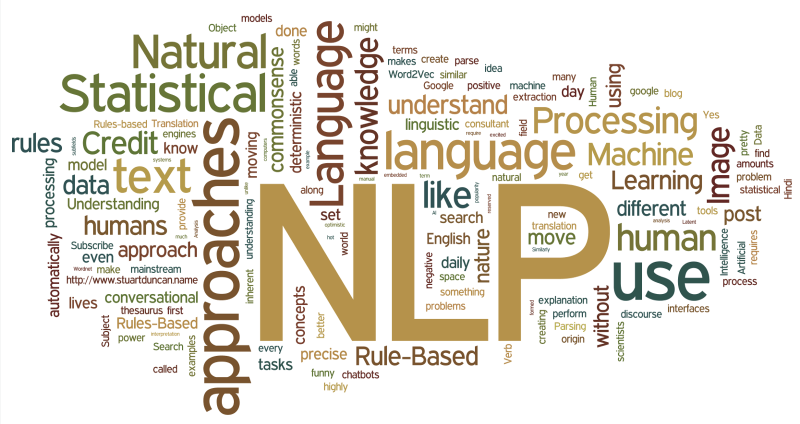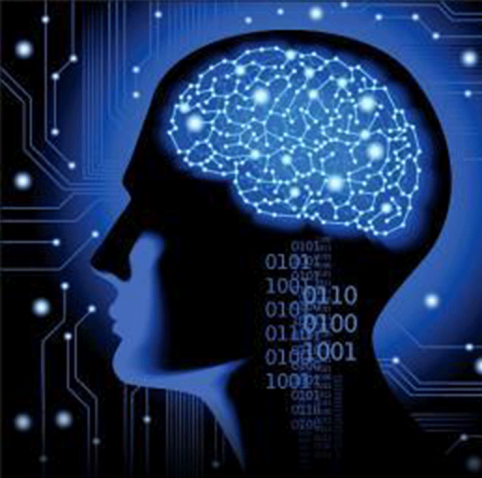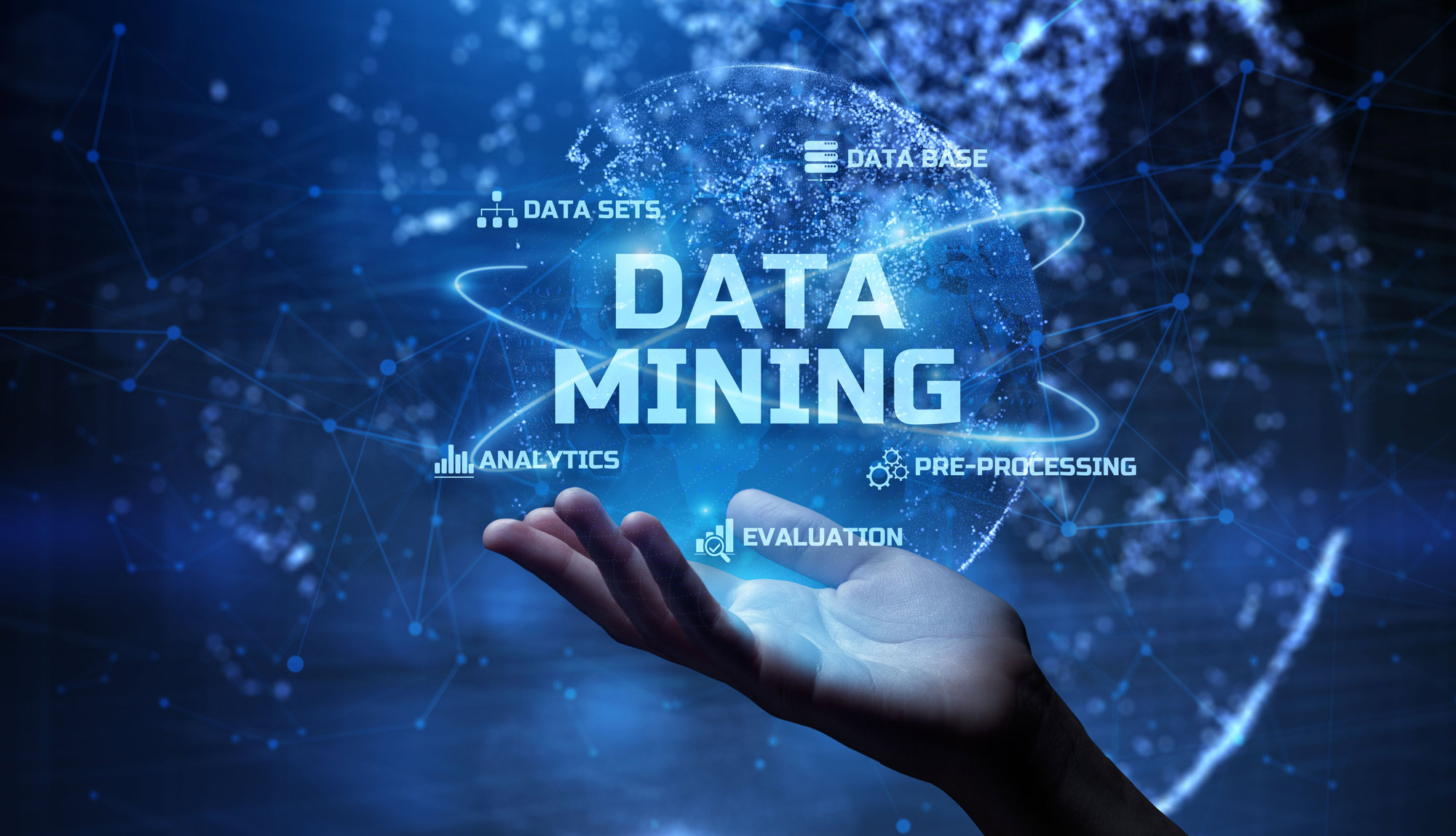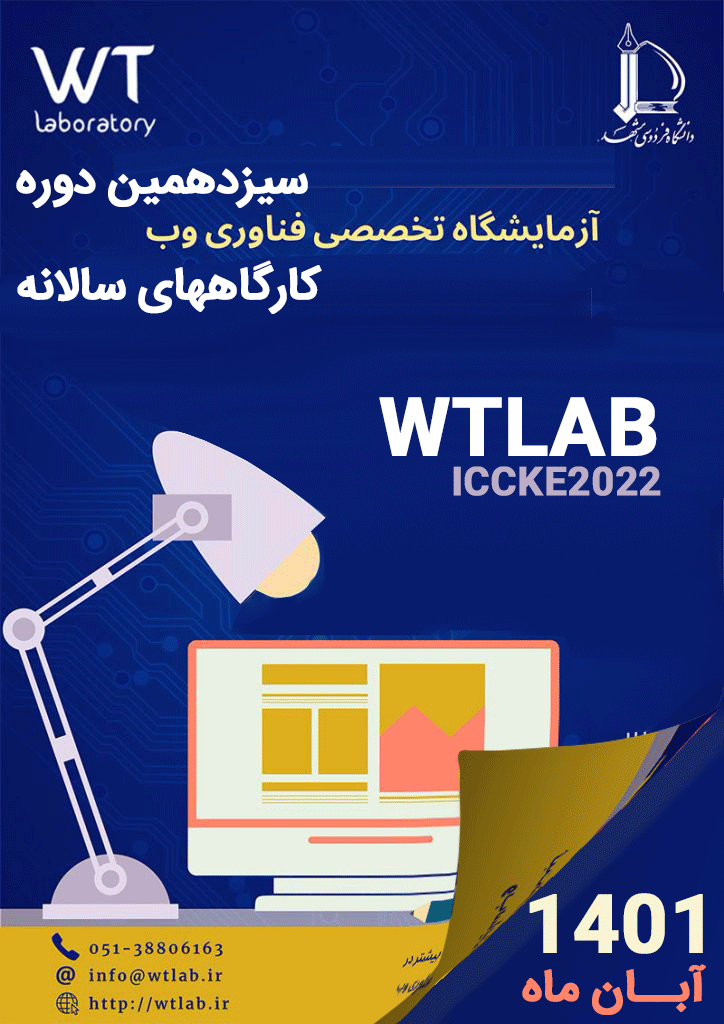
- Explainable artificial intelligence (4 hours) November 19, 8:00 am to 12:00 pm
- Dialogue-based systems (4 hours) November 19, 2 to 6 p.m
- Human calculations (4 hours) November 20, 8 am to 12 pm
- Computational psychology (4 hours) November 20 from 14:00 to 18:00
Audience: Bachelor’s and Master’s students in computer engineering and those interested in the mentioned subjects in all fields – as well as students of schools of brilliant talents and other talented and interested students How to register: visit the wtlab.ir website and fill out the company’s benefits registration form In the workshop: receiving a certificate of participation in the workshop from the specialized web technology laboratory WTLAB Registration deadline: (new) Until November 27, 1401. Time of the workshops: November 28 and 29, 1401. Conducting method: online. Cost of participating in each workshop title: For the general public – 300 thousand Tomans for students of all universities (except Ferdowsi) – 200 thousand Tomans for students of Ferdowsi University. Mashhad – 150 thousand Tomans is free for wtlab laboratory students Note: Employees of public and private organizations and offices can use the student tariff (200 thousand Tomans) for registration in case of group registration of more than 3 people.
How to participate and pay:
Those who are interested in participating in this program, according to the explanations on the relevant page, can pay the participation fee in the desired workshop/workshops to the card number 6037997365537100 in the name of Mohsen Kahani at National Bank of Iran.
Important note: Please complete the participation form in the workshop after depositing the desired amount and enter the last four numbers (right side) of the card or the account number of the source of payment in the desired place in the registration form.
Details of WTLAB2022 workshops

Computational psychology workshop information
Abstract:
In recent years, computational psychology has gained a special position among the researchers of computer and psychology as one of the emerging fields in terms of popularity. Extracting hidden knowledge from the mass of data recorded by psychological researchers by modern tools invented in computer science and artificial intelligence has increased the speed and accuracy of diagnosing and predicting mental disorders.
In this regard, the “Artificial Intelligence in Health” research group, the web technology laboratory of Ferdowsi University, in line with the latest developments, has achieved valuable achievements in this field in recent years under the guidance of respected professors and the efforts of graduate students. It is hoped that we can provide an opportunity to get to know more researchers and researchers interested in this field by proposing this topic.
Headlines:
- Introduction to computational psychology
- Applications of Computational Psychology
- Text analysis in the analysis, diagnosis and prediction of mental disorders
- Introduction of data types
- Introduction of common methods
- Social network data analysis
- Description of applied examples done in wtlab
- Introduction of conferences, workshops and related data banks along with introduction of useful resources for further study
Providers:
- Engineer Mahsa Khorasani
(Doctoral student of Computer Engineering, Artificial Intelligence, Ferdowsi University of Mashhad; Member of Web Technology Laboratory)
- Engineer Reza Saeedi
(Doctoral student of computer software engineering, Ferdowsi University of Mashhad, member of Web Technology Laboratory)
Date of holding:
November 20 from 14:00 to 18:00 (online)

Explainable artificial intelligence workshop information
Abstract:
The main purpose of artificial intelligence can be explained that humans can understand the decisions or predictions made by intelligent models. In other words, XAI creates models that provide explanatory capabilities. At the same time, they also maintain a high level of learning performance such as prediction accuracy, and as a result, users’ trust increases due to a better understanding of system results. This workshop discusses the most important topics in the field of explainable artificial intelligence, including model-dependent or independent explanation methods, evaluation of explainable models, application areas of explanatory models such as recommender systems, etc. In addition, an open source library called captum will be introduced that helps machine learning researchers to create descriptions.
Headlines:
1. Introducing the basics of explainable artificial intelligence
2. Introducing explanatory methods
3- Evaluation of explainable models
4. Application of explainable models
5. Introducing Captum open source library
Providers:
1. Engineer Havva Alizadeh Nougabi
(Doctoral student of computer and software engineering, Ferdowsi University; member of web technology laboratory)
2. Engineer Abolfazl Mohajeri
(Master’s student in computer and software engineering, Ferdowsi University; member of Web Technology Laboratory)
3. Engineer Sahar Ghasabi
(Master’s student in computer and software engineering, Ferdowsi University; member of Web Technology Laboratory)
Date of holding:
November 19 from 8 to 12

Human computing workshop information
Abstract:
The presence of computers and artificial intelligence in all aspects of our daily life, from personal and individual matters to professional and research matters, is increasing day by day. Although the computer is capable of solving complex and heavy problems, there are still some tasks that the computer cannot handle. Either he is not able to do them at all or he has low accuracy. Tasks such as recognizing objects in the image, recognizing the relevance of two items or entities, and translating audio are examples of these tasks.
Human intelligence is usually used in performing such tasks. Therefore, these tasks are called Human Intelligence Task or HIT for short, and the computational model of using human intelligence in doing tasks is called Human Computation. Crowdsourcing and serious games are examples of human computing. In this workshop, we will explain the basics and basic concepts of this model of calculations, and we will also examine its most important aspects, especially in terms of work definition and failure and recombination models. We will also carefully evaluate quality control as the most important concern in the use of human computing. Game making will also be studied as another main method of human computing.
Headlines:
Introducing the basics of HIT
Applications of HIT
HIT evaluation methods
Gaming and HIT
Providers:
۱. Dr. Mohammad Allah Bakhsh
(Associate Professor, Department of Computer Engineering, Ferdowsi University; Honorary Associate Professor, Macquarie University, Australia, Faculty of Web Technology Laboratory)
2. Engineer Sareh Sadeghian Asl
(Information Technology Researcher, Queensland University of Technology, Australia, member of Web Technology Lab)
Date of holding:
November 20 from 8 to 12
Workshop information on conversational systems
Abstract:
In recent years, significant progress has been made in the field of conversation-oriented systems. These systems are actually a prelude to the entry of robots into the deeper layers of human life. However, studying in this field requires diverse knowledge in the fields of computer, psychology, linguistics, etc.
Presenting a more precise definition of conversation-oriented systems and explaining their concepts and principles, along with issues such as categorizing these systems and introducing the architectures of each category, will form the talks of the providers of this workshop. In addition, in order to familiarize the interested parties with how to develop a dialogue-oriented system, methods of implementation and evaluation of this model of systems will also be presented.
Headlines:
- Introducing the system dialogue (chatbot)
- Features of conversation with humans
- Types of conversational systems
- Dialog types of task-oriented systems
- Introduction of deep network architectures of complex systems
- Evaluating dialog-based systems
- Methods of implementing dialog-based systems
Providers:
1. Engineer Mohammad Sobhi
(PhD student of computer engineering, artificial intelligence, Amirkabir University of Technology)
2. Seyyed Mahmoud Soltani
(Doctoral student of computer and software engineering, Ferdowsi University; member of web technology laboratory)
Date of holding:
November 19 from 14:00 to 18:00








